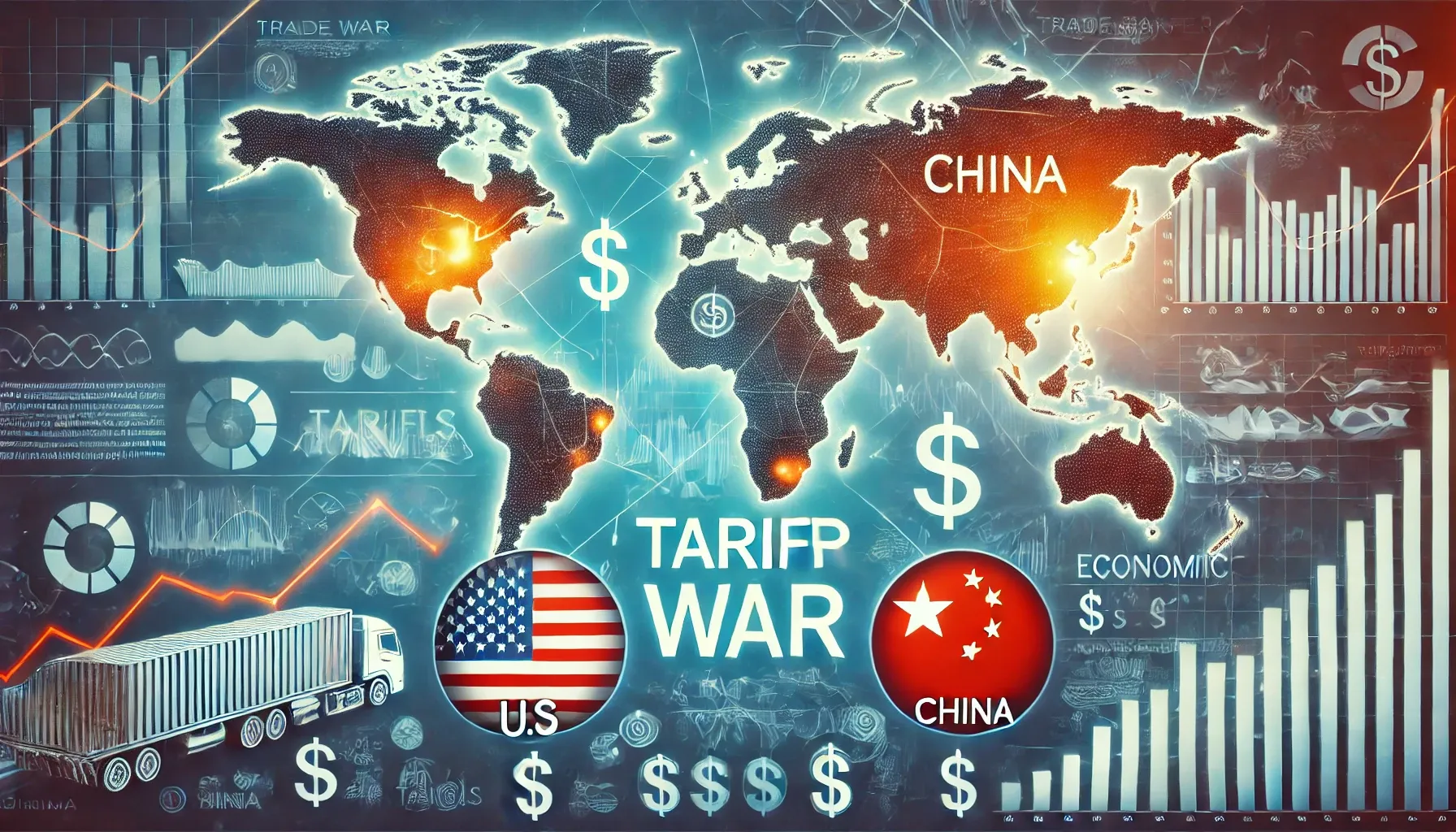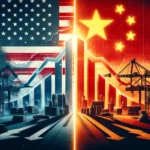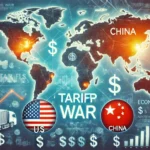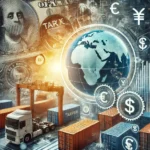The US tariff war has reshaped global trade. But what is it about? Why did it happen? And what could its future hold? Explore all these crucial aspects and their impact on the global economy.
What Sparked the US Tariff War?
The US tariff war, particularly with China, is often referred to as a “trade war,” as it involves countries imposing tariffs on each other’s goods to pressure economic behavior. Initially, tariffs were imposed by the US government as part of a strategy to level the playing field, curb unfair trade practices, and stimulate domestic industries. But why did this conflict escalate, and what factors played a role?
Reasons for the US Tariff War
-
Trade Imbalance The US experienced a significant trade deficit with China, with the US importing more than it exported. This growing imbalance was seen as a key factor driving tariffs.
-
Intellectual Property Theft Concerns about intellectual property theft and forced technology transfers in China led to accusations of unfair economic practices.
-
Market Access American companies sought better access to Chinese markets, which were often closed off by tariffs and regulations.
-
Geopolitical Competition Beyond trade, the US and China have been competing for global influence, especially in areas like technology and defense.
-
Domestic Politics US policymakers, including President Trump, viewed tariffs as a tool to rally their base and showcase a tough stance on trade with China.
Through these factors, the US tariff war became more than just an economic dispute—it was also about reshaping global power dynamics and asserting economic dominance.
👉 Learn More about the US Tariff War Reasons 👈
The Effects of the US Tariff War
The tariffs had far-reaching consequences. While intended to protect American jobs and industries, the war also led to unexpected results:
-
Increased Costs for Consumers Tariffs raised prices on goods imported from China, affecting consumers directly.
-
Global Supply Chain Disruptions The conflict caused disruptions in global supply chains, particularly in technology and manufacturing.
-
Stock Market Volatility The unpredictability of tariff decisions created fluctuations in stock prices, especially for companies with significant exposure to China.
-
Strained Diplomatic Relations The trade tensions strained US-China relations, complicating cooperation on other issues like climate change and international security.
The US-China Customs War and Its Economic Ramifications
The US-China customs war not only affects bilateral trade but also has ripple effects on the global economy. Countries that rely on Chinese goods or American exports were caught in the crossfire, making it a worldwide issue.
Effects on Global Trade
-
Diversion of Trade Routes Some countries, especially in Southeast Asia, became alternatives for goods once imported from China. This change shifted global trade flows significantly.
-
Emergence of New Tariff Standards The US tariff standards evolved rapidly as new policies were introduced and altered based on political considerations.
-
Market Reactions Investors and businesses alike were forced to rethink their strategies to mitigate risk, leading to significant changes in stock prices globally.
These shifts highlight just how interconnected the global economy is, and how a tariff war between two countries can destabilize broader markets.
👉 Learn More about US-China Customs War 👈
Future Prospects of the US Tariff War
What does the future hold for the US tariff war? Although it appears to have de-escalated in recent years, the potential for future tariff wars remains high, especially with China and other economic players like the European Union.
Possible Outcomes
-
Global Cooperation Countries might come together to establish a more balanced and sustainable trade agreement.
-
Retaliation Both the US and China might continue imposing tariffs, leading to ongoing economic strain.
-
Focus on Technology Future tariff wars could center around high-tech industries, such as artificial intelligence, semiconductors, and clean energy.
-
Economic Realignment New global powers may emerge as key trade leaders, potentially challenging US dominance.
The direction of the US tariff war will significantly influence global economies and international relations in the years to come. Both policymakers and businesses must be prepared for unpredictable changes in trade dynamics.
👉 Learn More about Future Tariff War Prospects 👈
Conclusion
In conclusion, the US tariff war has reshaped the landscape of global trade, with its impacts felt worldwide. From the initial reasons for the conflict, to its effects on international trade, and the future possibilities, it’s clear that tariff policies will continue to be a powerful tool in global economic strategies. Understanding these factors is crucial for both businesses and consumers as they navigate an increasingly complex international trade environment.
As history has shown, economic wars don’t end quickly—they evolve and adapt, often with unpredictable results. Therefore, the world must remain vigilant to the shifting tides of tariff policies in the years to come.






